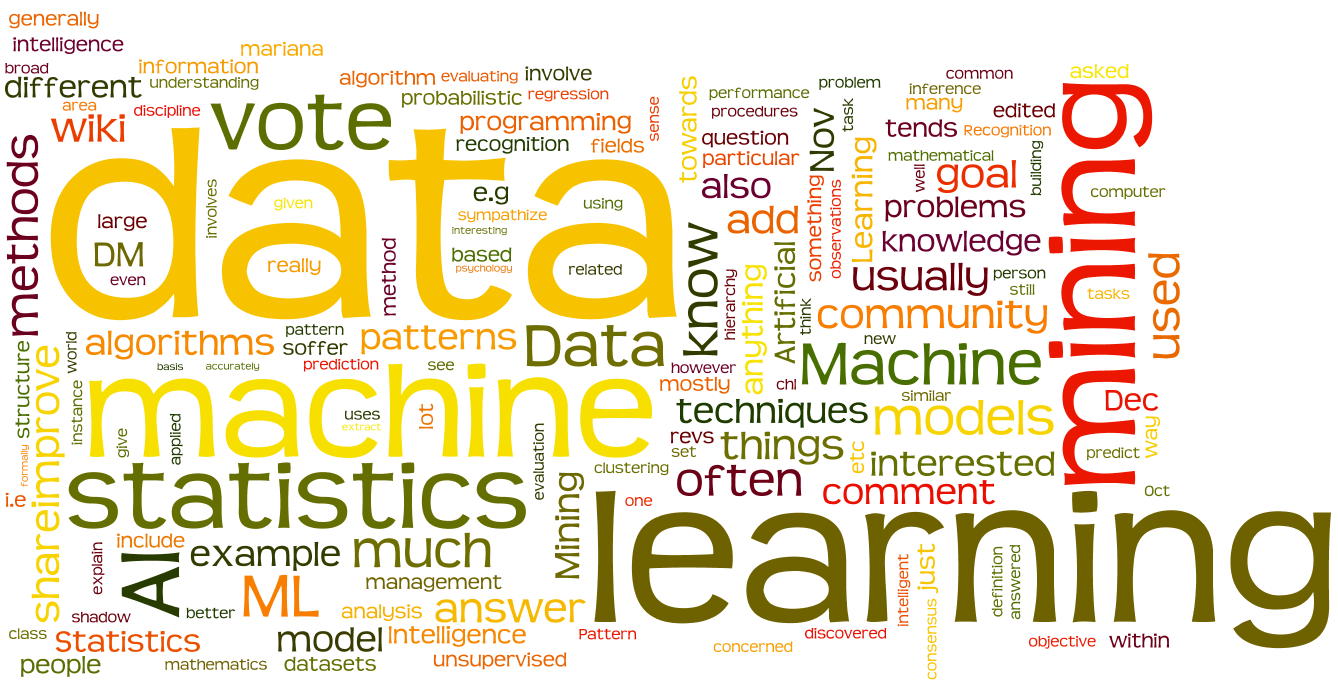The final paper will be due on April 28, 2019, 11:59PM (midnight). Remember to submit it before the deadline.

CIS 5930-02 Advanced Data Mining
Date: Jan 7-Apr 26, 2019
Time: M/W 3:35-4:50PM
Location: Lov 0301
Instructor: Jiawei Zhang
Email: jzhang [AT] cs.fsu.edu
Office: 171 James Love Building
Office Hours: M/W 5:00-6:00PM
Teaching Assistant: Yuxiang Ren
Email: yren@cs.fsu.edu
Office: NA
Office Hours: NA
The course focuses on selective areas of importance in data mining and machine learning. Data mining and Machine Learning are both the recently hot topic in both academia and industry, and solutions developed in the research hold substantial impacts in many important applications. Selective topics will be covered in the Advanced Data Mining course.
No required textbook.
You are expected to have background knowledge in Data Structure, Algorithm, Discrete Mathematics. You will also need to be familiar with basic Linear Algebra, basic Statistics, and can master at least one programming language and have programming experiences.
The objective of this course is to familiarize students with the latest research topics related to data mining and machine learning. Course activities include 1) paper reading and paper review; 2) paper presentation and discussion; and 3) research oriented course paper writing.
In-class presentation: 30% . Powerpoint presentation needs to be submitted on the day of the presentation, before 11:59PM (midnight) of your presentation day. Copying existing presentation from the web is regarded as plagiarism.
Course participation and Q&A: 20% . A summary/review of each in-class discussion paper needs to be submitted before each class starts (i.e., before 3:35PM M/W). During the class, presenter and audiences can have Q&A with the pre-prepared questions in the review report.
Course paper: 50% . Single authored original work on data mining/machine learning. Not recycled published/submitted/on-going work with another faculties or classes.
Gemeral Policy